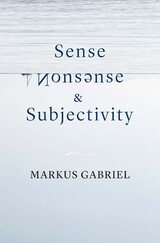
Imagine a world where whole epochs will pass, cultures rise and fall, between a telephone call and the reply. Think of the human race multiplying 500-million fold, or evolving new, distinct species. Consider the technology of space colonization, computer-assisted reproduction, the “Martian potato.” One hundred years after H. G. Wells visited the future in The Time Machine, Freeman Dyson marshals his uncommon gifts as a scientist and storyteller to take us once more to that ever-closer, ever-receding time to come.
Since Disturbing the Universe, the book that first brought him international renown, Freeman Dyson has been helping us see ourselves and our world from a scientist’s point of view. In Imagined Worlds he brings this perspective to a speculative future to show us where science and technology, real and imagined, may be taking us. The stories he tells—about “Napoleonic” versus “Tolstoyan” styles of doing science; the coming era of radioneurology and radiotelepathy; the works of writers from Aldous Huxley to Michael Crichton to William Blake; Samuel Gompers and the American labor movement—come from science, science fiction, and history. Sharing in the joy and gloom of these sources, Dyson seeks out the lessons we must learn from all three if we are to understand our future and guide it in hopeful directions.
Whether looking at the Gaia theory or the future of nuclear weapons, science fiction or the dangers of “science worship,” seagoing kayaks or the Pluto Express, Dyson is concerned with ethics, with how we might mitigate the evil consequences of technology and enhance the good. At the heart of it all is the belief once expressed by the biologist J. B. S. Haldane, that progress in science will bring enormous confusion and misery to humankind unless it is accompanied by progress in ethics.

Eighteen essays plus four examples from the ninth annual J. Lloyd Eaton Conference on Science Fiction and Fantasy Literature at the University of California, Riverside.
The concept of mindscape, Slusser and Rabkin explain, allows critics to focus on a single fundamental problem: "The constant need for a relation between mind and some being external to mind."
The essayists are Poul Anderson, Wendy Doniger O’Flaherty, Ronald J. Heckelman, David Brin, Frank McConnell, George E. Slusser, James Romm, Jack G. Voller, Peter Fitting, Michael R. Collings, Pascal J. Thomas, Reinhart Lutz, Joseph D. Miller, Gary Westfahl, Bill Lee, Max P. Belin, William Lomax, and Donald M. Hassler.
The book concludes with four authors discussing examples of mindscape. The participants are Jean-Pierre Barricelli, Gregory Benford, Gary Kern, and David N. Samuelson.

To show how the imagined world of the storyteller informs us about the real world of experience, a distinguished social scientist brings the perspective of his discipline to bear on two and a half centuries of fiction. Under his scrutiny, the novel reveals a wealth of insight into sociological, historical, and political phenomena. Morroe Berger illustrates his points with an extraordinary range of novels in Europe and America, from Defoe to Forster and Golding.
The interaction between the novel and social science started in the eighteenth century, when these two ways of examining human behavior and social life achieved their modern form. Writers of fiction broadened their outlook to take in social class and touched upon other issues that are still very much alive, such as individualism, marriage, and the status of women. The novelist, Berger makes clear, is no intruder among historians and social scientists, but rather has been focusing on the same landscape through a different lens. Berger demonstrates that the novel has enriched our understanding of political power, class, law, cultural conflict, and interpersonal relations. He compares Fielding's fiction with Mandeville's essays in the eighteenth century, and Silone's novels of power and bureaucracy with social scientists' treatments of these themes in the twentieth. He points out how such novels as Robinson Crusoe and Lord of the Flies amplify the theory of the social contract. And he examines the clash of cultures as portrayed in the novel of colonial life. Having affirmed the novel's contribution to social science, Berger explodes its claims to offering a higher scientific truth—Balzac's zoology and Zola's experimental novel are cases in point—and reviews the long-standing dispute between science and literature exemplified in the writings of C. P. Snow.
READERS
Browse our collection.
PUBLISHERS
See BiblioVault's publisher services.
STUDENT SERVICES
Files for college accessibility offices.
UChicago Accessibility Resources
home | accessibility | search | about | contact us
BiblioVault ® 2001 - 2024
The University of Chicago Press









